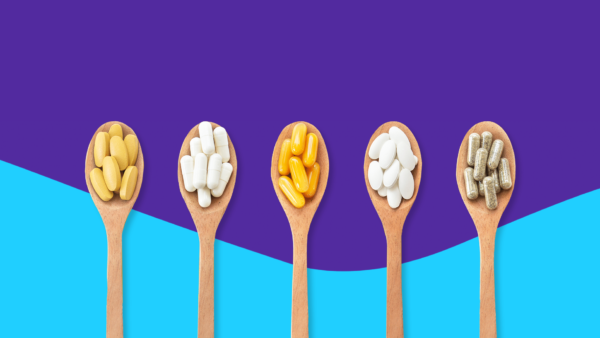Ever wonder how those tiny vitamins on your plate become your body’s secret weapon? They’re like invisible ninjas hiding in delicious food – oranges bursting with vitamin C, carrots loaded with vitamin A. We also get a vitamin boost from helpers called supplements.
Once these miniature tools enter your digestive system, the real adventure begins. The small intestine is their training ground, but there’s a catch: some vitamins are social butterflies (B vitamins and vitamin C), dissolving in water and hopping straight into the bloodstream. Others, the fat-soluble kind (vitamins A, D, E, and K), are pickier. They team up with healthy fats for a smoother ride.
Factors Affecting Vitamin Absorption
These tiny tools face a surprising journey before becoming your body’s supporter. First, there’s their own quirkiness. Fat-soluble vitamins (A, D, E, K) are like picky eaters, needing healthy fats to enter the bloodstream. Water-soluble vitamins (C and B) are easygoing, dissolving in water and waltzing right in.
But age can throw a wrench in things. Our bodies, like forgetful bouncers at a club, might not be as efficient at letting vitamins in. And sneaky culprits like medications and fiber can act like pickpockets, stealing vitamins before they reach their destination.
Supporting Absorption through Diet and Timing
Taking a daily multivitamin or supplements? Great! But did you know there are secret tricks to make them work even better? It’s all about what you eat with them and when you take them!
Think of your body like a high-tech factory. To get the most out of your vitamins, you need to create the perfect environment for them to be absorbed. Here’s the cool thing: certain foods can actually boost other vitamins’ absorption – like a vitamin dream team! Pairing iron-rich foods with some citrus or peppers can give your iron a real punch.
Timing is also key. Fat-soluble vitamins (A, D, E, K) are like picky celebrities. They need healthy fats from your food to feel comfortable entering the bloodstream. Imagine taking your vitamins with a breakfast that includes avocado or nuts.
Now, let’s talk about what happens when vitamins don’t get the royal treatment. While major deficiencies are rare, they can still leave you feeling sluggish. Think of it like your body’s orchestra missing a few instruments. Recognizing the signs of a vitamin deficiency is important because it highlights the importance of proper absorption.
Role of Supplements in Correcting Deficiencies
Life throws curveballs – skipped breakfasts, fast-food lunches, and nights where fries win over veggies. That’s where the supplement squad swoops in, your secret weapon against nutritional gaps. Supplements are concentrated vitamin and mineral powerhouses, filling the blanks when your diet falls short. They become especially important for those facing challenges like:
- Picky Eaters: We all know them, the champions of pizza and fries. Supplements can be a lifesaver, ensuring essential vitamins even if their food adventures are limited.
- Medical Mavens: Certain conditions can mess with nutrient absorption. Supplements can bridge that gap, supporting your overall health.
- Dietary Detectives: Vegans, for instance, might need a vitamin B12 boost since it lives mainly in animal products. Supplements help ensure they don’t miss out on crucial nutrients.
Conclusion
Getting the most from vitamins is an adventure – maximizing their impact on your well-being. It’s all about absorption, or how well your body uses them. Picture vitamins as warriors needing the right resources to fight for your health. A balanced diet acts as their arsenal, providing the nutrients they need to be strong.
By understanding bioavailability factors, you can become a strategic leader in your health. Make informed choices about nutrients to craft your personalized plan for peak performance. It’s not just about pills, it’s about a holistic approach to nourish your body from within. With knowledge and strategy, you can transform those tiny warriors into a powerful army, safeguarding your health for years to come!

